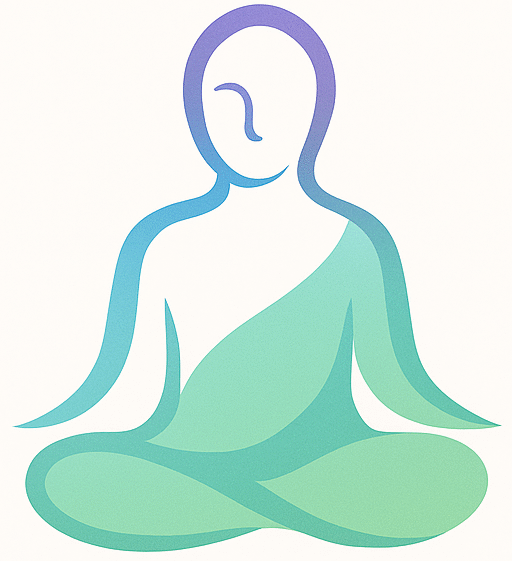7 Signs Your Mind Needs a Break – And How Meditation Can Help Instantly
📚 Table of Contents
- Introduction
- 1. You’re Always Mentally Tired
- 2. You’re Irritable and Reactive
- 3. Difficulty Focusing or Completing Tasks
- 4. You Avoid People
- 5. You Feel Emotionally Numb
- 6. You’re Overthinking Everything
- 7. Physical Symptoms Without Medical Cause
- Bonus: 7-Day Mind Healing Challenge
- Conclusion
7 Signs Your Mind Needs a Break – And How Meditation Can Help Instantly

Introduction– Your Mind Needs a Break
In today’s fast-paced, digitally overloaded world, mental burnout is more common than ever. Our schedules are packed, our screens are always glowing, and the pressure to perform is relentless. Amid this chaos, we often ignore the subtle cries of our mind asking for rest, silence, or healing. Over time, emotional fatigue begins to erode not just our mental well-being but our physical health, relationships, and sense of self.
The mind, just like any other part of the body, requires care, attention, and time to recover. If you’ve been feeling off, overwhelmed, or uninspired, your inner self may be trying to tell you something.
The good news? Meditation offers an instant, accessible, and powerful solution.
In this post, we’ll explore the 7 major signs your mind needs a break, the science behind each symptom, and how simple meditation techniques can reverse the damage and help you feel whole again.
1. You’re Always Mentally Tired, Even After Sleeping
Have you ever woken up after a full 7–8 hours of sleep and still felt exhausted? This isn’t just physical tiredness—this is mental fatigue. When your brain is constantly processing, worrying, or overstimulated, traditional rest like sleep may not be enough to reset your system.
🧠 The Science:
Sleep addresses physical rest but does little to soothe the mind’s constant chatter. Meditation, on the other hand, directly quiets the mind, reduces cortisol (stress hormone), and rebalances the brain’s hemispheres.
🧘 What You Can Do:
Practice a 10-minute Body Scan Meditation every morning. Focus your attention gently on each part of your body from head to toe, noticing tension, discomfort, or emotion. This helps your subconscious process unresolved stress.
✨ Pro Tip:
Do this before checking your phone. Let your first connection each morning be with yourself.
2. You’re Irritable and Reactive Over Small Things
Does every little inconvenience annoy you? Do you snap easily or feel emotional turbulence over things that never used to bother you?
🧠 The Science:
When your brain is under stress, the amygdala (your emotional reaction center) becomes hyperactive. You lose the ability to pause, reflect, and respond mindfully.
🧘 What You Can Do:
Practice Breath Awareness Meditation. Sit in silence and gently observe your breath for 5–10 minutes. You don’t need to change it—just witness it.
This calms your nervous system and reduces emotional reactivity by strengthening the prefrontal cortex (decision-making center).
✨ Pro Tip:
Pair this meditation with a calming essential oil like lavender or sandalwood.
3. Difficulty Focusing or Completing Simple Tasks
You open your laptop to send an email, and 40 minutes later, you’re watching random YouTube videos. You start tasks but leave them unfinished. Even simple responsibilities feel mentally exhausting.
🧠 The Science:
This is often caused by mental overstimulation and dopamine imbalance from digital overload. Multitasking shrinks your ability to focus deeply.
🧘 What You Can Do:
Try Trataka (Candle Gazing Meditation). Light a candle in a dark room, place it at eye level, and stare at the flame without blinking for as long as possible. Then close your eyes and visualize the flame.
This technique sharpens focus, boosts memory, and clears the mind.
✨ Pro Tip:
Make this a nighttime ritual—it also improves sleep.

4. You Avoid People or Social Interaction
Have you started saying no to plans, ignoring messages, or avoiding people—even those you love? This could be a sign of emotional exhaustion.
🧠 The Science:
When we are overwhelmed, we go into survival mode. Our social brain—the part responsible for empathy, compassion, and bonding—shuts down.
🧘 What You Can Do:
Practice Loving-Kindness Meditation (Metta Bhavana). Close your eyes and repeat phrases like: “May I be happy. May I be healthy. May I be at peace.” Then direct the same phrases toward others: friends, family, even strangers.
This rewires your brain for empathy and helps re-open the heart.
✨ Pro Tip:
Start with yourself. You can’t pour love from an empty cup.
5. You Feel Emotionally Numb or Uninspired
You no longer enjoy the things you used to love. Music sounds dull, creativity feels blocked, and your passion is gone.
🧠 The Science:
Chronic stress suppresses dopamine and serotonin—two key neurotransmitters responsible for joy, motivation, and creativity.
🧘 What You Can Do:
Try Chakra Meditation, especially focusing on the Solar Plexus Chakra (self-worth, energy) and Heart Chakra (joy, love).
Visualize golden and green light radiating from your core. Use affirmations like: “I am worthy. I am full of life. I feel joy.”
✨ Pro Tip:
Pair your meditation with uplifting music tuned to 528 Hz or 639 Hz.
6. You’re Overthinking Everything
Your thoughts race endlessly. You’re stuck in “what ifs” and “should haves.” Even when you try to relax, your mind keeps replaying conversations or future fears.
🧠 The Science:
This is called cognitive looping. Meditation helps by breaking repetitive thought cycles and rewiring your brain for present-moment awareness.
🧘 What You Can Do:
Practice Mindfulness Meditation. Focus on your current moment—breath, body, sounds. When your mind wanders, gently bring it back.
Even 2 minutes of mindfulness, practiced frequently, changes the structure of the brain.
✨ Pro Tip:
Use a mindfulness bell app to pause and breathe every hour.
7. Physical Symptoms with No Medical Cause
Tension headaches, digestive issues, body aches—if the doctor says you’re fine but symptoms persist, the root might be stress.
🧠 The Science:
Unprocessed emotions and mental stress store themselves in the body. This is known as “somatization.”
🧘 What You Can Do:
Try Yoga Nidra (Yogic Sleep)—a guided meditation that takes you into deep states of relaxation. It helps you access the subconscious and release trauma.
Start with 15–20 minutes before bedtime. You’ll sleep better and wake up more refreshed.
✨ Pro Tip:
Use a weighted blanket and essential oils to deepen the relaxation.
BONUS: 7-Day Mind Healing Meditation Challenge
Want fast transformation? Follow this day-by-day plan:
Day 1: Body Scan Meditation – Morning (10 min)
Day 2: Breath Awareness – Evening (10 min)
Day 3: Trataka (Candle Gazing) – Night (5 min)
Day 4: Loving-Kindness – Morning (15 min)
Day 5: Chakra Meditation – Evening (Solar Plexus + Heart)
Day 6: Mindfulness Meditation – Any time (5 min)
Day 7: Yoga Nidra – Bedtime (20 min)
📌 Tip: Stick to the same time daily. Track your emotional state in a journal after each session.
Conclusion: Give Your Mind the Break It Deserves
If even two or three of these signs feel familiar, your mind is clearly asking for rest. Meditation isn’t a luxury anymore—it’s a mental necessity.
Just as we care for our bodies with food and sleep, our minds require stillness, silence, and self-connection. You don’t need to climb mountains or escape to a monastery. Just 10–15 minutes a day can bring deep healing.
🧘 Start today. Not tomorrow. Not someday. Now.
At YMukti.com, we are here to walk with you on this journey—offering resources, wisdom, and meditations for every step of your healing.
🙏 Your mind deserves peace. Your soul deserves freedom. Your journey begins here.
7 Signs Your Mind Needs a Break – And How Meditation Can Help Instantly

